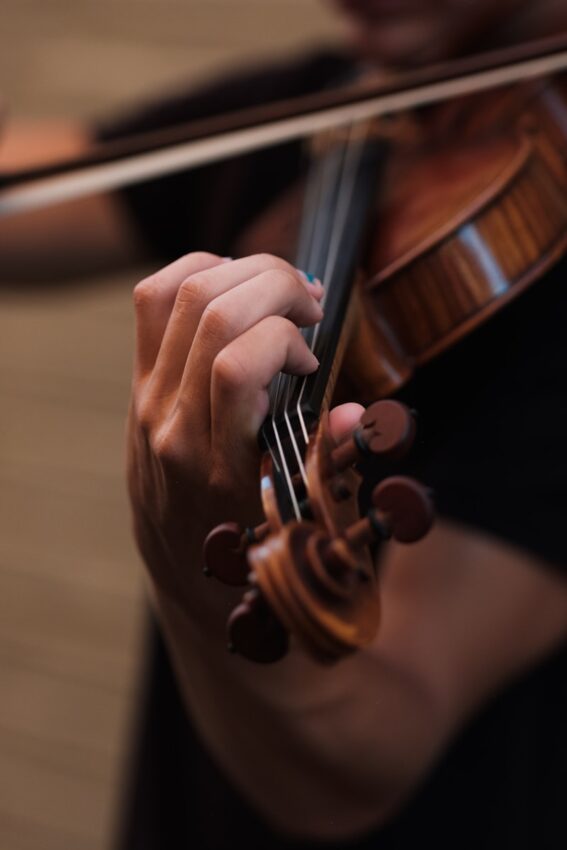Generally speaking, the hefty price tag of a high-quality instrument often matches the individual’s passion for playing the violin. Whether you’re a professional musician or an enthusiastic beginner, knowing how to negotiate violin prices can save you hundreds, if not thousands, of dollars. This blog post will explore essential strategies to empower you to navigate purchasing violins like a pro.
-
Do Your Research:
Before entering into negotiations, it’s crucial to understand the current market value of new and used violins for sale. Use online resources and visit reputable music stores to educate yourself about different brands, models, and price ranges. Compare prices across various platforms to establish a baseline value for the type of violin you desire.
-
Build Relationships:
Approach negotiations as an opportunity to build long-term relationships with sellers and fellow musicians. Network at events like music festivals or concerts and discuss violins and their pricing trends. By cultivating relationships within the music community, you may gain access to insider knowledge that is instrumental in negotiating better deals.
-
Timing is Key:
In any negotiation discussion involving violins, timing plays a significant role. Most instruments are highly seasonal regarding sales patterns—take advantage of this information when moving. At certain times of the year when demand may be lower—perhaps around winter holidays or during vacation periods—sellers may be more willing to negotiate prices.
-
Demonstrating Genuine Interest:
During negotiations, show genuine enthusiasm for the instrument you desire without revealing your exact budget too early in the conversation. Many sellers appreciate knowledgeable buyers who value quality over just wanting a bargain; thus, invest some time studying everything related to sound quality, materials used, craftsmanship techniques, etc., so that you can genuinely express interest in these aspects during negotiations.
-
Consider Pre-Owned or Vintage Options:
Exploring pre-owned or vintage violin options can present attractive opportunities for negotiation. These instruments may not only carry unique tonal characteristics but also allow buyers to negotiate prices due to their age or potential need for repairs. However, when considering such violins, ensure you have an expert appraise their condition to negotiate the best price and avoid hidden costs.
-
Bundle and Accessorize:
Negotiation isn’t limited to just the instrument itself! Remember to consider the value of including accessories in your negotiation discussions. Cases, bows, rosin, and other accessories are vital components of a comprehensive violin package. By combining the purchase of these items with the negotiation of the violin’s final price, you can leverage a better deal overall.
-
Be Prepared to Walk Away:
One of the most effective negotiating strategies is if you’re ready to walk away when an agreement doesn’t align with your budget or expectations. This approach demonstrates that you have done your homework and are committed to finding the right instrument at the right price—the possibility of losing a sale forces sellers to reconsider their initial stance and make more favorable offers.
-
Seek Professional Assistance:
If you need more confidence in your negotiation skills or additional support, consider seeking professional assistance through reputable brokers or consultants specializing in buying and selling high-quality instruments like violins. These experts can guide you through negotiations, ensuring that both parties reach a mutually beneficial outcome.
-
Be Flexible with Payment Options:
When negotiating violin prices, being open to different payment options is essential. Some sellers may be more flexible if you are willing to pay in installments or split the total cost over a period. You can negotiate a better price for your dream violin by discussing various payment arrangements.
-
Attend Instrument Auctions:
Auctions can be an excellent opportunity to find high-quality violins at more affordable prices. Look for local and online auctions that specialize in musical instruments. Attend these events armed with your knowledge of violin values and bidding strategies. You might snag a great deal with patience and good timing by bidding competitively.
-
Negotiate Repairs and Adjustments:
If you’ve found a violin you love but need some repairs or adjustments, don’t hesitate to negotiate these costs as part of the overall price negotiation. Whether repairing a crack, replacing strings, or adjusting the soundpost, factor in these expenses and use them as leverage when negotiating the final price with the seller.
Negotiating violin prices should no longer be intimidating with these essential strategies in your arsenal. Conduct thorough research, build relationships within the music community, take advantage of timing opportunities, demonstrate a genuine interest in quality instruments, thoughtfully explore pre-owned options, and consider bundle deals that include accessories.


